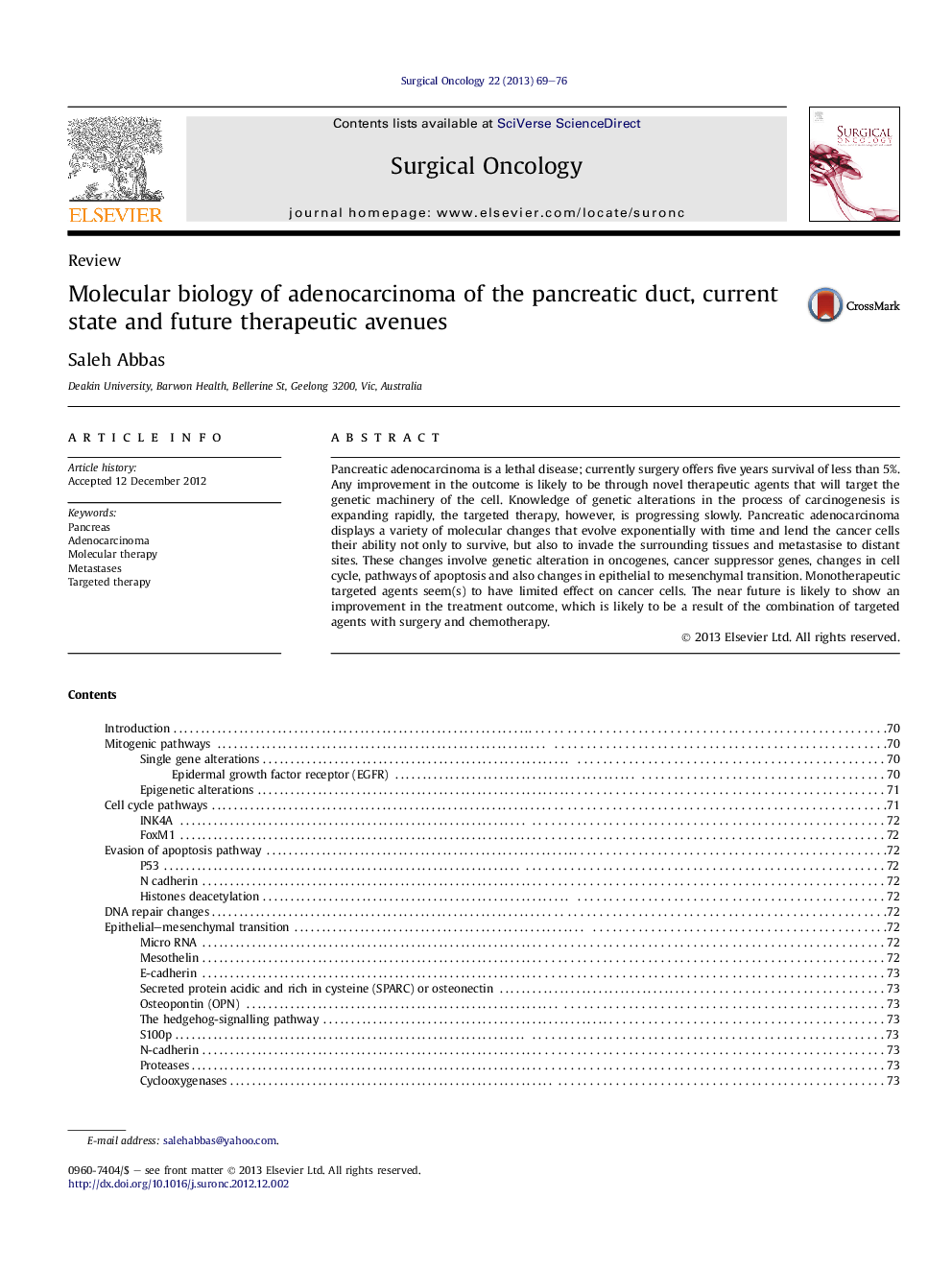| Article ID | Journal | Published Year | Pages | File Type |
|---|---|---|---|---|
| 3997896 | Surgical Oncology | 2013 | 8 Pages |
Pancreatic adenocarcinoma is a lethal disease; currently surgery offers five years survival of less than 5%. Any improvement in the outcome is likely to be through novel therapeutic agents that will target the genetic machinery of the cell. Knowledge of genetic alterations in the process of carcinogenesis is expanding rapidly, the targeted therapy, however, is progressing slowly. Pancreatic adenocarcinoma displays a variety of molecular changes that evolve exponentially with time and lend the cancer cells their ability not only to survive, but also to invade the surrounding tissues and metastasise to distant sites. These changes involve genetic alteration in oncogenes, cancer suppressor genes, changes in cell cycle, pathways of apoptosis and also changes in epithelial to mesenchymal transition. Monotherapeutic targeted agents seem(s) to have limited effect on cancer cells. The near future is likely to show an improvement in the treatment outcome, which is likely to be a result of the combination of targeted agents with surgery and chemotherapy.
